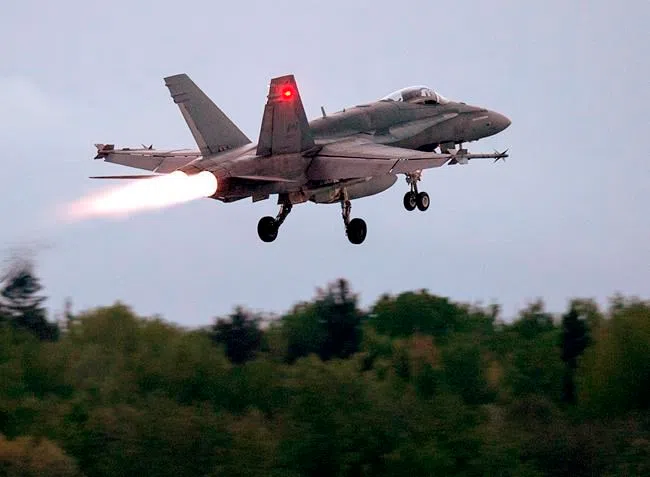
Air force to contract out some fighter-jet work to free up frontline technicians
OTTAWA — The Canadian military is looking to contract out some maintenance work on the country’s aging CF-18 fighter jets as well as training to help address a shortage of experienced technicians.
Defence officials revealed the plan during a Commons committee meeting on Monday, in which they also defended the time needed to pick a new jet for the air force and faced calls to reveal how much it will cost to upgrade the CF-18s’ combat systems.
The technician shortage was first revealed in an explosive auditor general’s report last month in which the watchdog took aim at the Liberals’ plan to buy second-hand Australian jets by warning the air force needed more technicians and pilots — not planes.
A number of measures are being introduced to address both shortfalls, air force commander Lt.-Gen. Al Meinzinger told the committee, including the contracting out of more involved maintenance that usually takes place away from the frontlines as well as some tech training.
